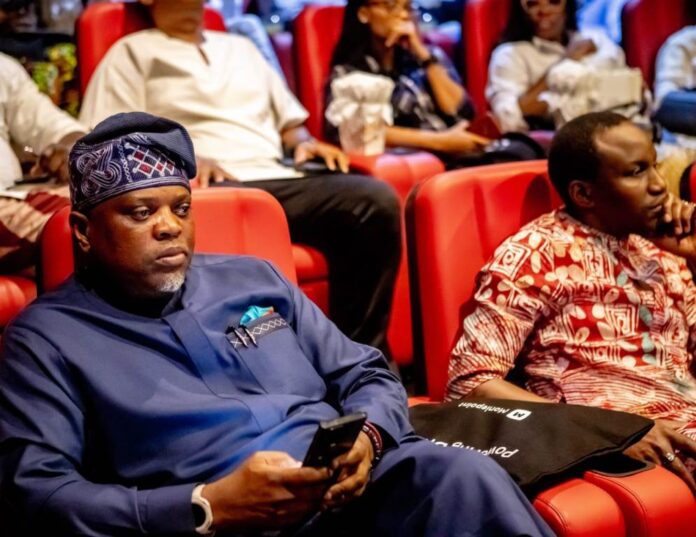
Ime Akpan
The special adviser to the president on economic affairs in the office of the vice president, Dr. Tope Fasua, has praised Moniepoint Inc for its transformative role in Nigeria’s agricultural sector, particularly in the northeast.
He made the commendation during a private screening of ‘Inside Nigeria’s food chain’ in Abuja.
He said the fintech company had showcased the resilience of the northeast’s agricultural value chain and empowered smallholder farmers through innovative digital payment solutions.
Fasua applauded the company’s documentary and case study for capturing how digital financial services are driving economic inclusion among rural communities traditionally not associated with technology adoption, even amid ongoing security challenges and cost-of-living pressures across the country.
The case study featured a 12-minute documentary exploring Nigeria’s food industry supply chain with a focus on the northeast region, particularly Borno State, highlighting how cultivation and distribution processes connect local farmers to the broader national market.
Commenting on the documentary, the presidential aide said: “It’s an eye opener for people to be able to see all of the operations going on. I have firsthand experience at how Moniepoint is changing the market dynamics for good. It was heartwarming to see the economic and financial inclusion x-rayed in the video with a lot of digitization going on at the level with people who you’d not associate with technology adoption.
“We can see the resilience that our people have demonstrated in churning out grains, livestock and agric produces. This work has also shown that our people are embracing modern and subsistence level farming. On the financial inclusion front, it is delightful to watch the confidence that the people have in digital payments and Moniepoint has done a fantastic job in deepening adoption across the country.”
A key finding from the case study showed that the informal, trust-based networks that power Nigeria’s food chain are not a weakness to be formalised, but a strategic asset to be strengthened.
These networks, built on generational knowledge and social capital, have proven more durable and adaptable in crisis than formal institutions.
Speaking to the rationale behind the screening and case study, vice president, corporate affairs, Moniepoint Inc, Mrs Edidiong Uwemakpan noted that the project is about real people and real impact.
“In view of the amount that we process monthly as a business, we sought to peel back the layers on the naira and kobo and uncover the stories behind the transactions and what they mean for Nigeria.
“Moniepoint as a Nigerian company has been able to achieve such impact by adopting hyper local support to build trust with its users tailoring our services to fit the existing lifestyle and trading habits of Nigerians,” Uwemakpan said.
She noted that Borno State had often been defined by negative narratives overshadowing its strengths.
“The documentary does not only focus on showcasing Moniepoint’s role in supporting food distribution but also reveal the state’s agricultural diversity, which contributes significantly to feeding millions of Nigerians, she added.
In his remarks, a communication expert, Mr Tolu Ogunlesi commended Moniepoint, saying: “Watching the documentary, a lot of the towns mentioned became famous not for food but as Boko Haram affected regions. This project allows us to truly appreciate these areas for what they really contribute to the country’s socio-economic development and what they should actually be famous for. This is a part of Nigeria that has been traumatised by insecurity but they have demonstrated remarkable resilience such that when people sit in their homes and they are eating, they are reminded that some of these products come from the northeast.”
























































